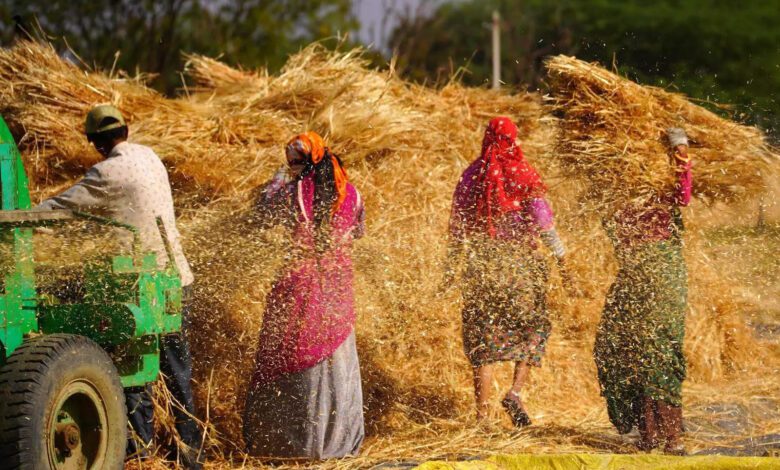Record wheat export for India; experts caution amid less production and rising domestic prices
India exported a record 1.4 million tonnes of wheat in April, expected to reach 1.5 tonnes in May. Experts caution amid less production due to heatwave and rising domestic prices suggesting an upper cap on exports.

Amid the Russia-Ukraine crisis, India has emerged as a wheat exporter to markets around the world including South Asia, Southeast Asia, the Middle East, Europe, and North Africa. India exported a record 1.4 million tonnes in April which is expected to reach 1.5 million tonnes in May.
For comparison in the fiscal year 21-22, India exported a total of 7 million tonnes of wheat, with April 2021 having just 242,857 tonnes of wheat exports. India is the only supplier of wheat at this time of the year, particularly after the Ukraine crisis.
With a new crop being expected in April, the exports are predicted to rise only further. As supplies dropped from Ukraine and Russia, which together used to account for about 29% of global wheat exports, top wheat importer Egypt agreed for the first time to purchase the grain from India. Turkey has placed orders for 50,000 tonnes of wheat imports from India.
India also exported wheat to other new markets such as Israel, Turkey, Indonesia, Mozambique, and Tanzania. In addition, the United Nations’ World Food Programme sourced wheat from India to supply to Somalia, Kenya, and Djibouti.
However, experts have cautioned against this export calling for an upper limit amid low production in India due to heatwave and the rising prices of wheat in the domestic market. The prices of wheat and its by-product like atta, bread, biscuit, etc is rising day by day.
Experts say a country like India needs surplus stocks and caution the government against private traders dictating the market.
“What is worrying is that while domestic prices are increasing, the government has no mechanism to cool them off. The production has reduced and there will be no purchases before next season. All this should have been considered before allowing exports,” says agriculture expert and former member of the UP Planning Commission Sudhir Panwar.
Suggesting an upper cap on exports, food, and agricultural policy expert Devinder Sharma says while wheat prices registered an increase of just nine percent in the past four years, the prices of ‘atta’ went up by 42 percent and beyond.
“There should be an upper cap of say 12 MT on exports. We have to be doubly watchful as there is no stock available in the international market. India should not land in a situation where our reserves are exhausted and we have to go around with a begging bowl,” cautions Sharma.
A similar type of situation took place in 2005-2006 when private traders were allowed to buy from farmers and export. Traders exported so much so that India had to import 7.1 million tonnes of wheat for the next two years at double the price paid to Indian farmers due to a shortage in the government’s domestic PDS scheme.
The government does not see the situation as a case for control of wheat exports, rather it is facilitating traders. The government says wheat procurement has reduced but the availability and procurement of rice are sufficient to meet the demand under the National Food Security Act.



